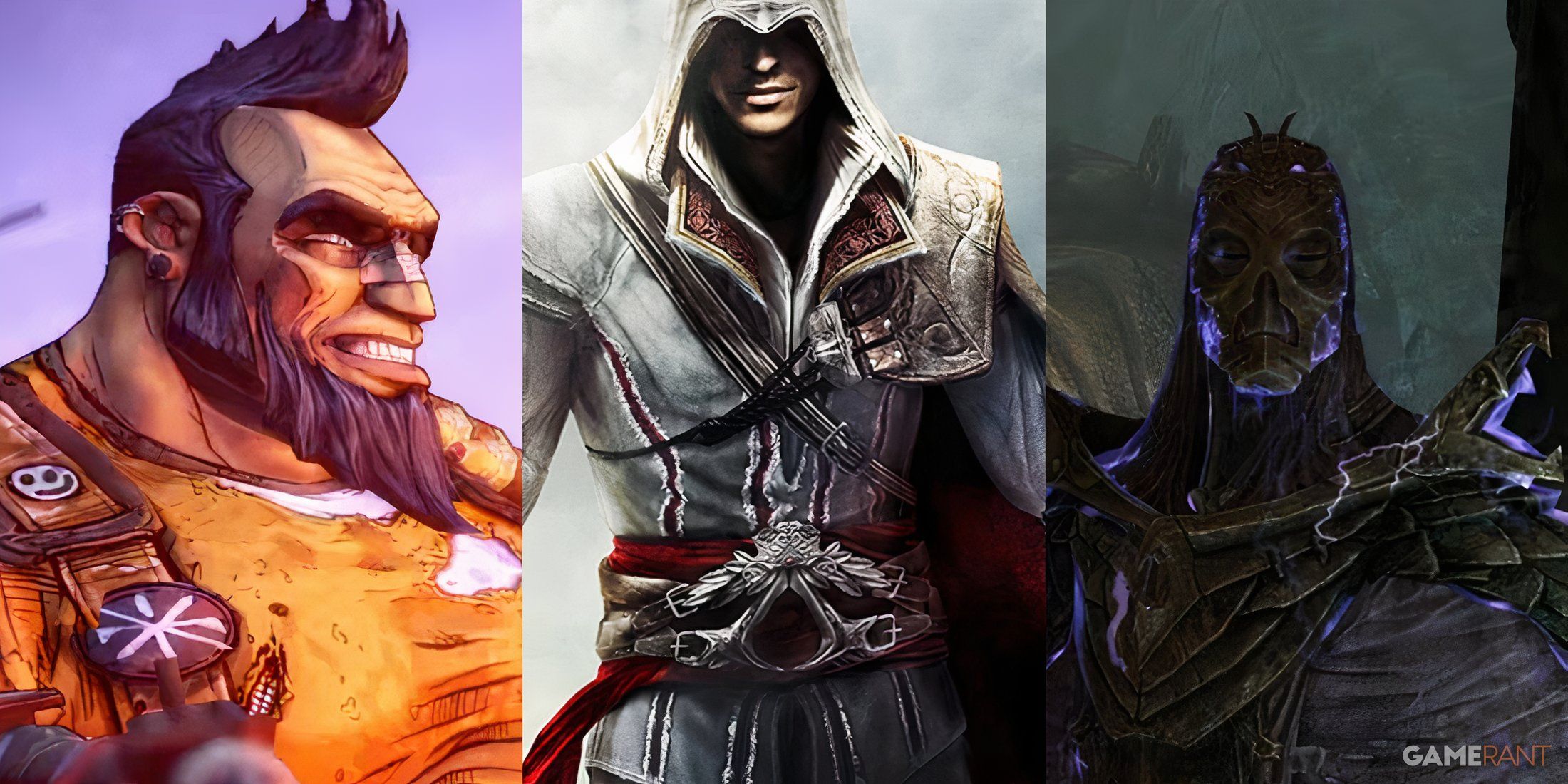Tech
Review: The Legend Of Zelda: Echoes Of Wisdom (Switch) – A Bold Blend Of Old & New That Ranks With The Series’ Best

The Legend of Zelda: Echoes of Wisdom contains many great life lessons we should all take into consideration: get others to do all the work for you; talking to cats is worth your time; making friends with spiders is good; horses can smell carrots from hundreds of miles away. Oh, and beds solve all problems.
Okay, in all seriousness, as the first brand-new top-down Zelda since 2015’s Tri Force Heroes, Echoes of Wisdom is a near-perfect marriage of the old and the new. As with many of Nintendo’s best titles, this adventure completely understands the magic of play, the wonder of curiosity. This time, however, that essence has been distilled into a tiny, top-down experience, complete with that beautiful minfigure look from Grezzo’s Link’s Awakening remake, and the developer is back to make magic yet again with the franchise.

For the first time in a mainline entry, Zelda is unabashedly the hero, with no caveats. But this is still a Legend of Zelda game, meaning structurally it’ll be very familiar to anyone who played a 2D Zelda before – go here, solve a local problem, go to a dungeon, fight a boss, etc. It’s genuinely exciting to explore Hyrule in this art style, and looking at the glossy trees of Hyrule Field and the crystal clear waters of Jabul Waters and Faron Wetlands is a treat. The flute rendition of Hyrule Field’s theme, complete with a new flourish of Zelda’s Lullaby, equally gets our hearts racing.
While Echoes of Wisdom is without a doubt a ‘classic’ Zelda, it takes that old formula and twists it into something fresh thanks to the titular character herself. You can’t just go in with your Master Sword and Hookshot; you actually have to rewire your brain on how you tackle every situation thanks to the Tri Rod, a staff given to the princess by her new, adorable companion, Tri. This can be used to make a copy of the various items and enemies across Hyrule.
As you progress, you’ll amass a huge catalogue of Echoes to summon for your every need, and you’ll also be able to cast multiple at once as you level up your floating yellow friend. It’s never not satisfying to send out a mob of Moblins to destroy a group of enemies while you’re cutting grass or picking up rocks to find ladders or hidden items. Every boss and enemy encounter is a little puzzle to solve, whether it’s using the right monster Echoes or utilising the elements through Water Blocks or Braziers.

In a pinch, Zelda can use a sword by turning into Swordfighter Form. Eventually, you get the use of a bow and some bombs, giving you a brief snippet of Link’s gameplay, but it isn’t a crutch: despite being extremely powerful, Zelda can only maintain this form for a few seconds — a bit longer when fully upgraded — so if you want to use it, you need to make it count.
Using Echoes, Zelda fully embraces the plastic-y aesthetic and Hyrule feels like a giant toybox stuffed full of puzzles, where everything from getting Heart Pieces to fighting enemies requires careful consideration. Where big trees in Link’s Awakening or A Link to the Past serve as obstacles separating regions, Zelda can simply use beds, rocks, or even clouds to climb up and walk all over them. It grants a level of freedom we’ve never seen in a top-down Zelda game before. With Echoes, comparisons to both Breath of the Wild and Tears of the Kingdom are more than apt – just on a much smaller, more controlled scale.

Like the open-world 3D adventures of the Switch era, Echoes of Wisdom gives you even more to do outside of exploring and using Echoes. Side quests provide fun little diversions that lead you to hidden caves, optional bosses, and sometimes accessories to help Zelda along. You can run around and collect stamps for Hyrule’s resident weird little chap, Stamp Guy. You also eventually get Automatons, little robotic creatures that look rather cool, but feel a little useless, especially as you amass an army of enemy Echoes throughout the game that can do everything these metallic guys can.
Back to the more traditional Zelda qualities, similar to the Dark World, there’s a strange alternate realm for Zelda to explore: the Still World. As Zelda enters menacing purple rifts throughout the game, you’ll uncover fractured pockets of Hyrule you need to restore. Trees are ripped from the ground and floating; bodies of water are now suspended mid-air; and the citizens of Hyrule are in stasis, dripping with black. Navigating these little segments is extremely fun: many are optional and reward you with upgrades for Tri, but most are home to a true Zelda staple – dungeons.

Echoes of Wisdom applies its whole philosophy to the series’ vintage top-down dungeons to great effect. None of them are particularly challenging, but they are classic Zelda to a tee, complete with puzzles, keys, locked rooms full of monsters, and more. There are also side-on sections, both in and out of dungeons, that require more smart use of your Echoes. Even the stealth sections are fun, especially if you accidentally box the soldiers in together so only one can see you but he’s blocked by the others. We’re so glad we can make more stupid decisions like this in a top-down environment. Plus, if you want more of a challenge, you can hop into Hero Mode at any point — it’s worth it, because it definitely bites.
Another ability you’ll need to get to grips with is Bind. Using Tri, Zelda can ‘bind’ herself to enemies and objects and either shift them around in accordance with her own movements or follow their movements. Or you could just, like us, use it to drop enemies into bottomless pits. It takes some getting used to, particularly after countless hours using Magnesis or the Ultrahand, but it can be extremely useful.
When you’re in busy rooms filled with crates, boulders, and enemies, you might need to target more specifically what you want to bind to. Unfortunately, this involves selecting the ‘Target’ button over and over again until you land on what you’re aiming for – whether it’s in combat or just to solve a puzzle. You don’t need to lock on if the item is right in front of you, but when items are high up, or enemies are airborne, targeting becomes essential, and cycling through makes things just a bit more fiddly than they need to be.

There’s another lingering problem, one which was present in the Link’s Awakening remake: performance dips. Just like the 2019 game, Echoes of Wisdom’s frame rate, despite aiming for a consistent 60fps, is all over the place. If you like spinning around in the overworld and cutting grass, you’ll notice pretty frequent frame drops. Hebra Mountain and the Gerudo Desert also suffer, where sandstorms and snow make things feel choppy. Inside buildings and in dungeons, the game is silky-smooth, which makes the frequent overworld stutters (in docked and handheld) even more noticeable.
Otherwise, this 15-20 hour adventure is a Zelda fan’s dream. With classic ‘2D’ gameplay and 3D experimentation coming together, Echoes of Wisdom’s originality reminds us that there’s space for both Zeldas in this world, beyond just remakes and sequels. That alone makes us happy to wield the Tri Rod and cause some chaos for the monsters of Hyrule.









